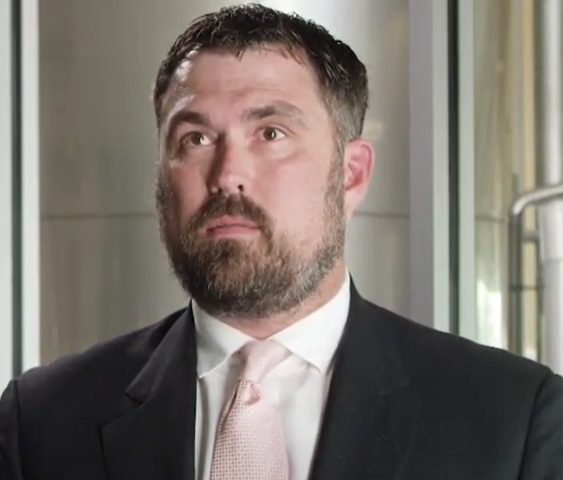Transitioning from military to civilian life can be jarring and often leads to depression and potentially substance abuse. The end result can sometimes be suicide, but veteran Morgan Luttrell says to stick it out. Take the reins, find the help you need, and commit to it.
Learn more about some of the treatments available for those recovering from brain injury and PTSD using our Treatment Hub.
Watch more videos from Morgan Luttrell.
Every single suicide is different. None of them can relate to the other. And yes, traumatic brain injury, post-traumatic stress, the inability to recognize a problem that is not, that you can’t control - the brain can say you can do anything. It’s what it does. So if it’s out of control, it may not necessarily be the veterans fault for doing what he was doing. It may be the out they’re looking for. And in a particular time of weakness, if you add in alcohol, if you add in drugs, if you add in depression and loneliness, the inability to cope with your new life. A lot of veterans come in out of high school, they’re 18 years old. They have had their hand held the whole time in the military, like through a looking glass, an hour glass. They have this big huge world that you enter into in the military, the big top part is the military. You learn so much, you learn so much in and it’s refined, refined, refined and you know everything. And there’s really nothing out of the ordinary. It’s right down there in the neck. So everything is kind of small, compact. You see it as it is. Once you transition into civilian world and you’re not a kid anymore and there’s nobody telling you how to walk, talk, what to dress, where to be. And that hour glass opens back up to this whole new world that you’re a grown man or woman now and nobody is there to take you by the hand, like your mom and daddy did or the drill instructor did when you walked in the military. You’re alone. And nobody is going to stand there and give you a job. Nobody is going to stand there and give you an answer. Nobody cares anymore. Honestly, nobody really cares anymore that you were in the service. They’re like hey, like I am saying to you, thank you for your service. But after that is [unintelligible], hey, yeah, that’s cool, appreciate you. I appreciate what you did, but I ain’t got nothing for you. Because your military service doesn’t translate to what I need in my job or my career, my business. That doesn’t. So you’re standing there with these kids that are grown-ups now that still have no idea what it means to be relatively an adult on their own and function. Buy clothes, buy - cook on their own, go out and find a job. And when you have the civilian population that doesn’t really understand and can’t relate to somebody who comes straight out of the military who has been there their whole life, that is a slippery slope and that will drag you down on top of an injury to the brain, on top of having a drug or an alcohol problem. It is, the complexities - I mean, the fractures, it’s just incomprehensible. And if you - because of your injury, you’re not mentally capable of recognizing it. Yeah, the easy way out, probably one, it’s pistol range. And that’s why you see so much of it. A lot of people are scared to say it or talk about that, but this is the point and place, the truth of it all. There’s a problem out there, it’s like hey, we have all of these institutions, these facilities in place and these foundations that are trying to help these veterans, but we are still having these problems. Okay, at the end of the day, the veteran needs to recognize they have a problem and they better step up. Because it’s not on everybody else to try to help you; you’ve got to help yourself. Quit feeling sorry for yourself. You got to go all the way and not tell everybody that I - if I’m pointing my name in a certain direction, they ask me for some advice. I’m like - hey buddy, hey sister. If I’m going to send you here, if these people are going to try to help you, you damn sure better go all in and realize it’s going to take you as well. This ain’t somebody dragging you down the road with a rope; you got to carry the load. It’s your load, it’s not theirs. Remember that. And you’d be surprised. An eye opening slap in the face like that is a good thing. Quit feeling sorry for yourself and have everyone else feeling sorry for you. If you really need some help and you really want to get better, you got to want it. Don't walk in there and it’s like “fix me” with your head down. And they can’t, and it’s like their fault. I’m unfixable. Ah. That’s not how this works. This up here, you can course correct that once we recognize those problems. That’s Morgan’s opinion. This video was produced by BrainLine thanks to generous support from the Infinite Hero Foundation.
This video was produced by BrainLine thanks to generous support from the Infinite Hero Foundation.
About the author: Morgan Luttrell
Morgan Luttrell is a Navy SEAL veteran. He sustained back injures including major damage to his spinal cord and suffered a traumatic brain injury in a helicopter crash during training. When he got out, he said he traveled the country trying to figure out how to “fix” his brain. He earned a master’s degree in applied cognition and neuroscience and a Ph.D. focusing his studies on helping veterans with PTSD and other traumatic brain injuries.

